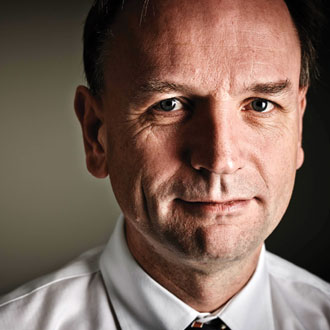Nine hospitals have been given part of the £200m funding to provide integrated primary, secondary and social care, which will allow them to appoint GPs, NHS England has announced.
The approval of the ‘vanguard’ projects – which also include 14 GP-led bids – marks the next major stage in the implementation of NHS chief executive Simon Stevens’ Five-Year Forward View.
NHS England said that there were 269 applications from groups of nurses, doctors and other health and social care staff.
In all, 29 bids were approved, including six bids by care homes.
The two main new models of care – the GP-led ‘multi-specialty community providers’ (MCPs) and the hospital-led ‘primary and acute care systems’ (PACS) – were included as part of NHS England’s Five-Year Forward View.
It had said that MCPs will be the more common new model, with PACS only established in areas of poor GP recruitment. But nine of the 29 bids approved were from hospital-led organisations.
The new models will employ a mix of primary and secondary care staff to deal with commonly encountered conditions such as diabetes, dementia and mental illness. Some will see some employing ‘social prescribing teams’ who will be able to refer patients to voluntary organisations and local authority services.
Pulse has previously revealed that several hospitals are well advanced in their planning, including one already advertising for £100k GP vacancies.
NHS England has said that both new models of care will be funded on a patient list basis ‘and other forms of funding’.
A statement by NHS England said: ‘It is estimated more than five million patients will benefit, just from this first wave. For example, this could mean: fewer trips to hospitals as cancer and dementia specialists and GPs work in new teams; a single point of access for family doctors, community nurses, social and mental health services; and access to tests, dialysis or chemotherapy much closer to home.’
Sir Sam Everington, chair of NHS Tower Hamlets CCG and NHS England national GP adviser, said that the successful bid in Tower Hamlets includes the 36 practices in the London borough.
He told Pulse: ‘One of the key parts of our model is social prescribing. Fundamentally this means from a GP’s desktop you can refer to a social prescribing team. You might suggest the jobs adviser or the health trainer, or someone to help you with your weight. Or it might just be “my patient has got this problem – can you help?”.
‘The team will then connect the patient to potentially 1,100 voluntary organisations, the local gym or a whole raft of support systems.’
GPC chair Dr Chaand Nagpaul said that if implemented properly and led by clinicians, ‘these models have the potential to break down disruptive organisational barriers between GP, hospital and community services’.
However, he added: ‘To achieve its aims, these proposals must… address the long term under resourcing of general practice as well as ensure that resources shift into the community to provide the expanded volume of care moving out of hospitals. It is also vital that these changes maintain the essential strengths of the personalised care provided by GPs to registered lists of patients.’
What various new models are doing
Multispeciality community providers (MCPs)
Tower Hamlets ‘Integrated Provider Partnership’
This project aims to build social, primary, community and acute care around the patient – offering them a ‘single shared assessment and plan’.
Derbyshire Community Health Services NHS Foundation Trust
This vanguard will develop a prevention team of GPs, advance nurse practitioners and mental health nurses, with extended care and therapy support to offer more care for people in the community. This includes a ‘focus on extending access to GP services’ and sharing GP records with A&E and Out of Hours computer systems.
Vitality (Birmingham)
GP partnership led project, offering care based around the GP with a care co-ordinator to support patients accessing care from across the range of social, mental, community and enhance secondary care services. Will include increased provision of community outpatient and diagnostic services.
Primary and Acute Care Systems (PACS)
Yeovil District Hospital NHS Foundation Trust ‘Integrated Primary and Acute Care System’
This bid involves a single budget for primary and secondary care, with patients given a care co-ordinator and a single personalised care plan, with ‘senior medical input’. GPs, hospital consultants, community staff and social workers will work as a single team to ‘share information about patient care needs, and deliver a more integrated set of services’.
Northumbria Healthcare NHS Trust
Hospital-led project involves redesign of community and acute services to create primary care ‘hubs’ offering seven-day appointments, with patients able to access their GP over the weekend to stop them going to emergency services. Model will have fully coordinated hospital discharge and shared IT functions.
Enhanced care home care
East and North Hertforshire CCG
A dedicated multidisciplinary teams including GPs, community psychiatric nurses, district nurses and geriatricians will work with care homes to support patients proactively, as well as when patients deteriorate. Will also develop a ‘rapid response’ service able to deploy community nurses, matrons, therapists and home carers within 90 minutes.
For full details click here

















